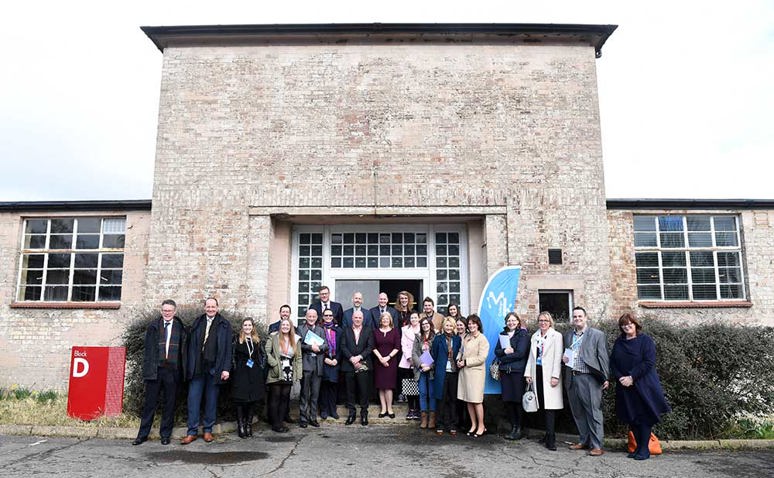- The CBI chevron_right
- The Institute of Technology at Bletchley Park – from code breakers to code makers
The Institute of Technology at Bletchley Park – from code breakers to code makers
On 10 April, the government announced the first 12 new employer-led Institutes of Technology. Microsoft and Milton Keynes College are collaborating on one of them. Here they share why – and how – they are aiming to inspire a new generation of digital talent.

1 of 2 Caption, 
2 of 2 Caption,
“We can only see a short distance ahead, but we can see plenty there that needs to be done.” It’s a timeless quote from Alan Turing, and one that aptly sets the scene for the transformation of Bletchley Park – the home of Second World War code breakers – into one of the first 12 new Institutes of Technology recently announced by the government.
By September 2021, Block D at the historic site will have been brought back to life, to inspire and instil 1,000 students a year with the digital skills that UK businesses desperately need.
The project was the brainchild of Julie Mills, Chief Executive at Milton Keynes College, who saw the government’s shake up of technical education as a “once in a lifetime opportunity” to renovate the old site into “a beacon for the next generation of digital talent”.
She needed businesses to back the plan to qualify for government funding, as the new Institutes of Technology are designed to be employer-led, but their support wasn’t hard to come by. And in April, the consortium that includes Microsoft, KPMG and McAfee, as well as Cranfield University, was granted £28m to start turning the aspiration into reality.
“It plays so beautifully to our strategy to tackle the UK digital skills shortage,” says Derrick McCourt, General Manager of the Customer Success Unit at Microsoft UK – who is responsible for recruiting tech talent, as well as diversity and inclusion.
At the centre of this strategy is the company’s digital skills programme, launched in 2017, which aims to deliver 30,000 new digital apprentices, 500,000 new cloud experts and 500,000 artificial intelligence specialists, and train 30,000 public sector officials by 2020. And this latest partnership is in addition to the proposed new digital skills university, also in Milton Keynes, set to open its doors in 2023 – showing that digital skills need attention at every level of the higher and further education system.
McCourt highlights the numbers that motivate Microsoft to get involved: in the UK there are less than 20,000 computer science graduates a year, yet 500,000 highly skilled workers are needed to fill digital roles by 2022. And only 20% of those working in the digital economy are female.
“The Institute offers a new route to market,” he adds.
Business partners will play a central role in developing the curriculum from scratch, as well as in teaching, mentoring and offering placements, ensuring the college will focus on the real-world skills businesses need and adapt as technology – and its application – changes. With Cranfield’s involvement, there will be a leadership aspect to the skills taught. And as VW Financial Services are also onboard, fintech is on the agenda too.
Diversity and inclusion has been made a priority. “The hard work on that starts now. It’s easy to say, but we’ve got to be very deliberate going forward,” says McCourt.
The message that he wants to get out is that digital skills are relevant to everyone in the world of work, and they are increasingly required to be a successful leader in any field. He thinks designing and marketing the Institute’s courses will provide new opportunities to appeal to more people.
Mills is optimistic that the college can learn from the experiments and best practice its partners can share on D&I. They also provide greater access to the role models that can help attract a broader range of applicants, she says. And the college’s marketing and communications team have already gone through Microsoft’s unconscious bias training, which Mills sees as an important starting point.
“It’s a no-brainer to resource it. It makes good business sense,” says McCourt of the effort involved in getting the Institute off the ground. “Talent is the biggest barrier to growth we have. When it comes to digital transformation, every conversation we have focuses on the struggle for skills and the uncertainty that brings.
“This is incredibly important for us. And frankly for the UK economy.”









